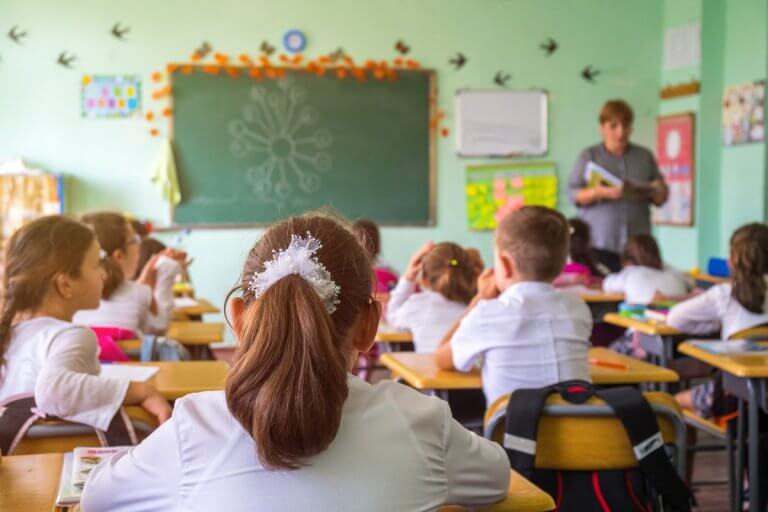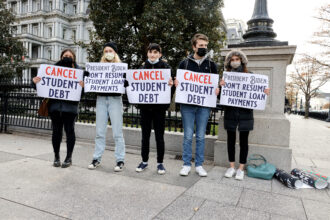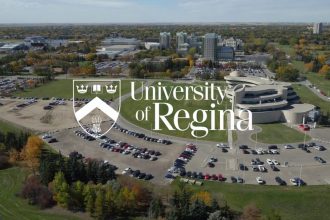According to a Progressive think tank report, charter schools are assisting low-income students.
A recent analysis discloses how charter schools are making good progress in bridging the performance gap for low-income students and paving the way for students who don’t shy away from school choices.
The Progressive Policy Institute’s (PPI’s) report, authored by educational equity advocate Tressa Pankovits, titled “Searching for the Tipping Point: Scaling Up Public School Choice Spurs Citywide Gains,” recommended cities with strong public charter schools options for families with low income are seeing beneficial outcomes for all students.
According to the Georgia Department of Education, Charter schools are funded by the government and operate “under the terms of a charter, or contract, with an authorizer, such as the state and local boards of education,” They receive flexibility in certain areas “in exchange for a higher degree of accountability for raising student achievement.”
Pankovits’ analysis stated, “Our report belies the oft-heard but unfounded criticism that charters somehow drain legacy schools of the ‘best’ students and resources, to the detriment of those left behind.” “Evidently, the growth of enrollment in charter schools creates a positive competitive dynamic with the traditional district schools, which have to up their game to attract parents and students.”
Charter schools reached a critical mass of 33% in student enrollment in all ten cities. The performance has also witnessed a significant improvement citywide to bridge the performance gap with the wide state averages by 25 to 40%.
The report stated: “Evidently, the growth of enrollment in charter schools creates a positive competitive dynamic with the traditional district schools, which have to up their game to attract parents and students. This is a complicated phenomenon that invites further research and study. But this report should bolster our growing confidence that we can fix underperforming schools and provide excellent learning environments to all children in low-income communities.”
A senior fellow at the American Culture Project and a self-described school choice evangelist, Corey DeAngelis, assessed the findings, describing school choice as “a rising tide that lifts all boats.”
He told the media, “Public schools up their game in response to competition when families can vote with their feet. School choice doesn’t hurt public schools: it makes them better.”
“Public school leaders will have to think twice about labeling parents as domestic terrorists – or cutting off their mics – when families can take their children’s education dollars elsewhere. Education freedom is a win-win solution: parents get more of a say and public schools improve. Having school choice almost counterintuitively reduces the likelihood that parents need to exercise that choice because it can solve problems in public schools.”
He added: “Funding students directly expands educational opportunities. School choice is an equalizer.”
The report cited Indianapolis, Indiana, and Camden, New Jersey, as two positive examples of school choice.
68% of students enrolled in charter schools in Camden by 2023, the achievement gap between students from income background and their wealthy peers narrowed by 42% over the past decade. The report also reveals that students enrolled in schools in the traditional districts bridged the gap by 35%. About 58% of students in Indianapolis attend charter schools, and the achievement gap is closed by 23%.
According to the report, students of colour benefit most from the school choice policies. About 70% of nonwhite students are enrolled in charter schools.
One of the reporters stated: “If Republicans are going all-in for school privatization, Democrats nationally appear to have outsourced their K-12 policy to teachers’ unions fighting rearguard actions to defend a status quo urgently in need of reform and modernization.
“Many of the working Americans we surveyed don’t believe their voices count when it comes to how their schools are run and their children are taught. When asked what groups public schools serve most today, six in 10 say ‘political activists’ and ‘teachers unions’ compared to four in 10 who say ‘students’ and ‘parents.; There’s a tragic irony here: The parties’ abandonment of public school reform and modernization comes amid stunning new evidence that public school choice is reducing inequality by lifting the performance of low-income and minority students.”
DeAngelis told the media, “Florida Governor Ron DeSantis owed his narrow 2018 gubernatorial victory to ‘School Choice Moms’ according to exit polling showing higher than expected support from Black moms after his Democratic opponent came out against school choice. Virginia Governor Glenn Youngkin beat Democrat Terry McAuliffe on the issue of parental rights in education. Now, the latest polling from Atlas Intel shows Donald Trump beating Kamala Harris on education nationally. That result represents a seismic shift towards Republicans on education, as Democrats have enjoyed a double-digit advantage on the issue for decades.”














